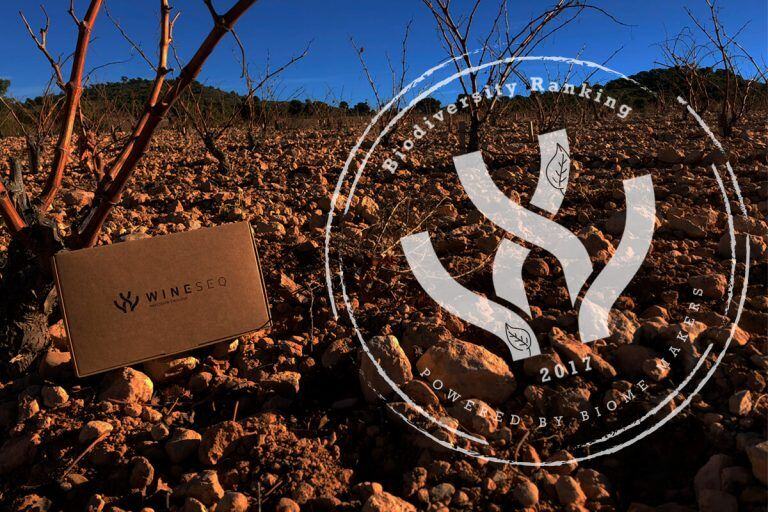Share this
Vineyards biodiversity has its own language
by Ava Mehrpour on Dec 19, 2017 10:11:44 AM
Biome Makers, a startup founded in San Francisco (USA), launches a study of biodiversity from more than 600 vineyards all over the world, highlights and enhances the plots that register an extraordinary microbiological diversity
The biodiversity ranking driven by Biome Makers measures and evaluates the global complexity of microbial communities as a basis for the biological activity in soils and as a sustainability indicator. This is an element derived from the respect for the terroir and the implementation of good practices in the vineyard. The ranking has been established using biodiversity indexes traditionally used in ecology and other related sciences, based on the richness, complexity, and balance of the microorganism communities that inhabit the vineyard soil.
The wineries with unique microbiological diversity, according to the findings, have been sorted in the top 10 of the year 2017. In the USA, the selected wineries –in alphabetical order- are: Bettinelli Vineyards (Napa Valley, California), Big Creek Vineyard (Pocono Mountains, Pennsylvania), Alta Loma Vineyard – Monterey Pacific (Soledad, California), OVID (Napa Valley, California), Rainin Vineyard – Renteria Vineyard (Calistoga, California), Screaming Eagle (Oakville, California), Silver Oak (Napa Valley, California), Trefethen (Napa Valley, California), Tres Sabores (St. Helena, California) and the last one is not published due to a confidentiality agreement (Napa Valley, California).

Biome Makers is a Smart Microbial Discovery startup based in San Francisco developing tools and products for more sustainable and productive agriculture. With the first development known as WineSeq®, the company looks for measuring the health and quality of vineyards by using the microbiome of the soil as a biomarker.
At Biome Makers, the interest is focused on the food of the future. Therefore, their technology was developed with precision in mind. They aim to help agricultural innovators make decisions concerning their crops while keeping their unique microbial communities in mind, through a unique combination of DNA sequencing and data intelligence.
Share this
- Corporate News (74)
- becrop (21)
- Technology (12)
- Ag Tech (11)
- alliance (8)
- Agriculture (7)
- fields4ever (6)
- Soil Health (5)
- Soil Testing (4)
- award (4)
- agroscience (3)
- bayer (3)
- BeCrop Advisors (2)
- Hiring (2)
- artificial intelligence (2)
- SARS-CoV-2 (1)
- Series B (1)
- WineSeq (1)
- aurea (1)
- bayer crop science (1)
- May 2025 (1)
- April 2025 (1)
- March 2025 (2)
- September 2024 (1)
- August 2024 (2)
- July 2024 (2)
- June 2024 (1)
- May 2024 (1)
- April 2024 (1)
- March 2024 (2)
- November 2023 (3)
- October 2023 (3)
- September 2023 (2)
- August 2023 (1)
- July 2023 (2)
- June 2023 (3)
- May 2023 (3)
- March 2023 (2)
- February 2023 (3)
- January 2023 (2)
- December 2022 (2)
- November 2022 (3)
- October 2022 (2)
- September 2022 (3)
- August 2022 (2)
- July 2022 (2)
- June 2022 (3)
- May 2022 (3)
- April 2022 (2)
- March 2022 (2)
- February 2022 (2)
- January 2022 (3)
- August 2021 (1)
- May 2021 (1)
- April 2021 (1)
- December 2020 (1)
- November 2020 (1)
- October 2020 (1)
- July 2020 (1)
- May 2020 (2)
- April 2020 (1)
- June 2018 (1)
- April 2018 (1)
- December 2017 (2)
- November 2016 (1)